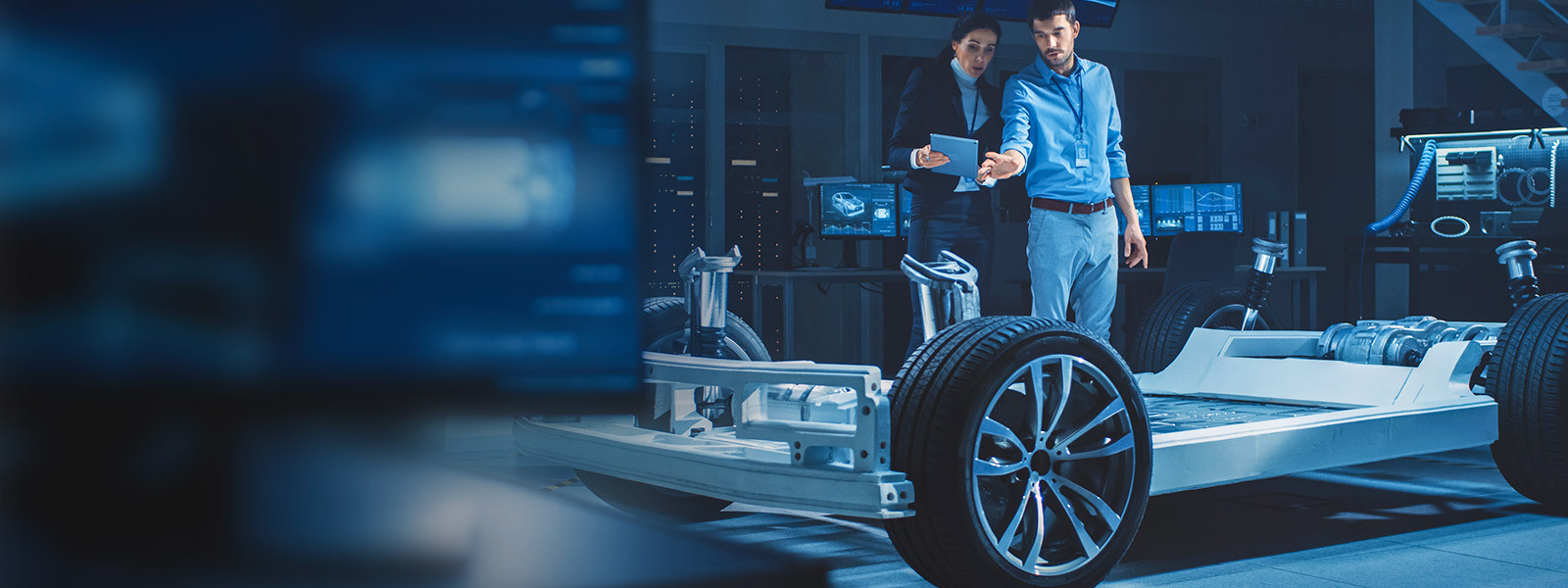Digital is transforming the automotive industry, driving innovation, sustainability and customer-centric experiences.
From alternative fuels and software development to sustainability and customer centricity, digital plays a multifaceted and transformative role. Embracing these advancements will enable automotive companies to revolutionise mobility and offer connected, sustainable and customer-centric cars for the future.
At this month's FT Future of the Car summit, we heard from OEMs and industry providers on the emerging trends in the sector. Below, we explore what this means for technology and how OEMs can get ahead of the curve.
Alternative fuels
One of the foremost advancements in the automotive industry is the transition to alternative fuels. Digital will play a crucial role in enabling this shift by facilitating the development of infrastructure, smart monitoring and sustainability reporting. With the help of advanced sensors and data analytics, smart monitoring systems can optimise fuel consumption, detect efficiencies and provide real-time feedback to both drivers and service providers. Moreover, the development of sustainable reporting mechanisms will allow stakeholders to monitor the environmental impact of vehicles and promote transparency in the industry.
Software development
In the future, cars will be “born digital”, becoming increasingly software dependant to deliver advancements; even today, there are 10 million lines of codes already in cars. For automotive companies to succeed in this new normal, they must assemble the right people with the necessary skills to drive software development. OEMs will need to elevate their tech and product partners to the level of an ecosystem partner, to embrace the collaborative approach and optimal sourcing models that can enhance cost efficiencies and foster innovation. By collaborating with tech companies and start-ups, automotive manufacturers can tap into their expertise and leverage their technological advancements.
Sustainability
The automotive industry is under growing pressure to reduce its carbon footprint. The cloud has emerged as a powerful tool for achieving this goal. By leveraging cloud-based services, automotive companies can optimise their operations, reduce the need for physical infrastructure and minimise energy consumption. But it is important to consider the impact of unnecessary data storage, meaning automotive companies must adopt efficient data management strategies to avoid reversing all their efforts on reducing their carbon footprint, by minimising storage requirements and ensuring that data is stored responsibly.
A large contributor to emissions in the automotive sector comes from traditional manufacturing methods. The Factory of the Future seeks to dramatically reduce this impact and go further towards helping OEMs achieve their sustainability goals. The concept of Smart Infrastructure will see new factories that can regulate and optimise their energy usage, leverage renewable energy to a greater extent, and embrace the principles of circular economy and resource efficiency. There will also be a dramatic increase in information available to accurately monitor all emissions within the manufacturing process, meaning further action can be taken to identify increasingly sustainable practices, supply chain partners and resources.
Inside the car
The future of cars lies in connectivity and infotainment. As vehicles become increasingly connected, drivers and passengers will have access to a range of innovative services and features. Seamless integration with smartphones and other devices will allow for personalised experiences, enabling drivers to stay connected, entertained and informed whilst on the move. Furthermore, the integration of Voice Assistants and artificial intelligence will enhance safety and convenience, making the driving experience more intuitive and more enjoyable.
Customer centricity
With the rise of direct-to-consumer models, automotive companies are re-evaluating their operating models to prioritise customer centricity. Technology will be instrumental in gathering and analysing customer data to gain valuable insights for ongoing developments. By utilising real-time adaptive insights, automotive companies can understand customer preferences, improve product offerings and enhance overall customer experience. Harnessing data for hyper-personalised experiences will be a unique selling point for OEMs going forward.
The power of unified data
Data is a common thread across these emerging trends, whether that be through data analysis, data-driven insight or data management. We see data at the heart of the organisational strategy in future, with leading organisations having unified data that empowers informed decision-making to drive business growth and gain a competitive edge. These organisations will leverage their enhanced data quality to reduce inefficiencies and redirect savings towards innovation and further developing customer experiences – they will also have the agility and flexibility to respond to changing business needs; from adopting emerging technologies (such as generative ai) to supporting agile decision-making. Our next update will further explore the Future of Experiences.















